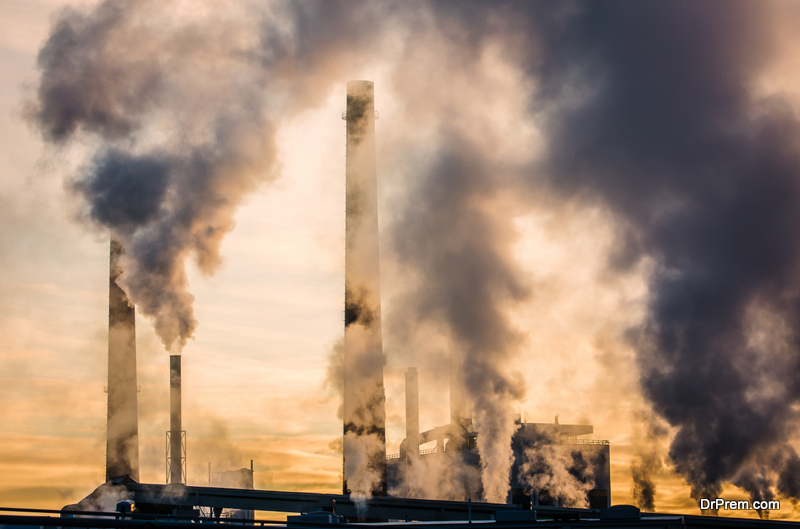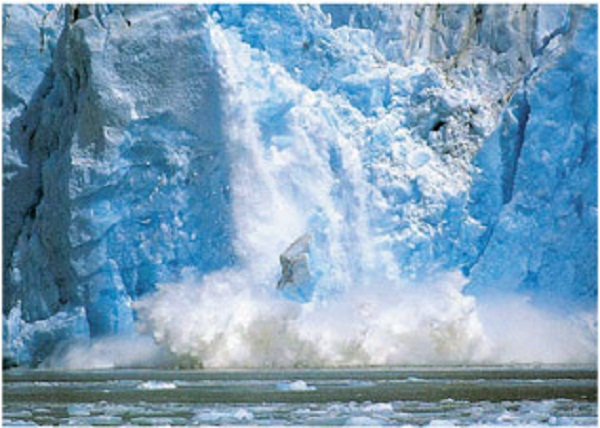UN’s climate report for 2017 found that extreme climate-related weather events cost a huge $320 billion. This has been the most expensive year for climate and extreme weather events. However, since the world now has a good weather station in almost every important city and has started keeping weather records. The last three years were the hottest years ever, and 2017 was the hottest of the three. Additionally, sea levels are rising worldwide and ocean acidification and warming is increasing by the day. The polar ice was also below average in 2017. Read on to find out how the world is warming up and what impact it will have on the weather:
How high weather records affected people worldwide?
2016 witnessed the hottest recorded temperature on earth. This led to chaotic weather events globally. North Atlantic saw an extremely active hurricane season, severe monsoon floods wreaked havoc in India; and at the other end of the spectrum, Africa experienced extreme drought. 892,000 people in Somalia lost their homes and livelihoods and were displaced because of inclement weather due to global warming. In total, 23.5 million people were displaced due to climate disasters.
Floods and landslides impacted the production of crops in Sri Lanka in 2017.
According to the IMF, low income or developing countries would be hit particularly hard by global temperatures rising by 1 degree (Celsius).
Impact of the rise in global temperature
As weather records indicated, hottest year on record UN reports was 2016. Due to the extreme heat, the risk of illnesses occurring due to heat is at its highest. 30% of global population is now living in zones where the temperature is deadly hot for a minimum of 20 days, according to WHO.
The high temperature of the seas and oceans has resulted in polar ice sheets melting. Greenland has been most affected by this, followed by Antarctica. The Arctic’s sea ice levels in winter was the lowest in 2017, which saw the hottest recorded temperature on earth. The heat measured in the ocean from the surface layers to 2,000 m was extremely high too.
Marine environment suffering severely
Ocean acidification occurs when carbon dioxide is absorbed by the ocean from the air above. This and the warm ocean temperatures have had a devastating effect on the marine ecology. Coral bleaching events at the Great Barrier Reef highlighted the warming effect. The source of income of millions of people depending on the seas and oceans suffered losses.
Atmospheric carbon dioxide levels at an all-time high
According to the recent weather records, carbon dioxide levels are more than 400 parts per million. This is much greater than the variation due to nature in 800,000 years! This figure lends weight to the views of most scientists of the world – that the global warming trends have been exacerbated by the greenhouse gases emitted by human actions.
Scientists are predicting that the carbon dioxide levels have no sign of abating for at least a few generations. This means that extreme weather conditions will continue to be seen.
2018 may see the same fate as 2017
It is hardly a few months into 2018, and the planet is experiencing the same heat and climate changes as 2017, which was the second hottest year on record UN reports stated.
The Arctic has been experiencing very high temperatures, and densely populated areas in Northern Hemisphere suffered from biting cold and severe winter storms. Argentina and Australia reeled under extreme heatwaves, and people in Somalia and Kenya are struggling to live in drought conditions. Cape Town in South Africa is facing desperate water shortage.
Epoch-making Paris climate pact
In 2015, approximately 200 countries met in Paris and agreed to take the steps necessary to reduce the use of fossil fuels. This move was fuelled by taking note of the weather records which could no longer be ignored. This has led to governments of 200 countries promoting the production and use of eco-friendly renewable energy.
US President Donald Trump, however, has stated that he would withdraw from the Paris pact. This is because he is not convinced that greenhouse emissions are the primary cause of global warming. He would, in fact, promote the production of domestic oil, gas, and coal.
It would be extremely difficult to reduce global temperatures caused by greenhouse gas emission in the near future. Only a consistent and concerted effort by governments and people to consciously reduce the use of fossil fuels can perhaps reduce the global temperature and provide relief to the planet.










